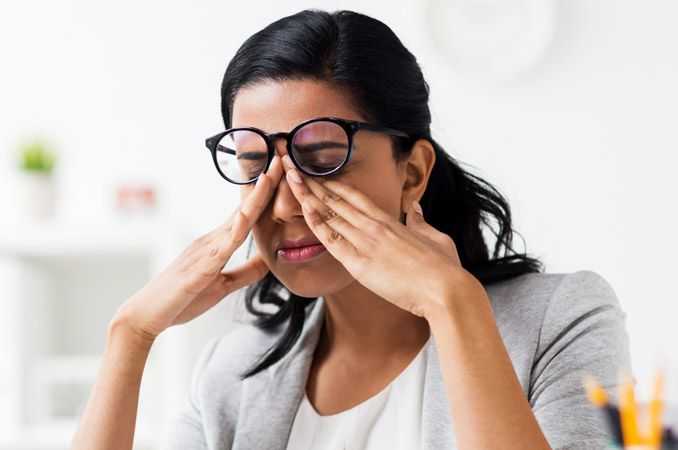Eye twitching causes, triggers and remedies

Eye twitching, also known as eyelid twitching, is a very common eye condition. These annoying twitches usually affect only the lower eyelid of one eye, but the upper eyelid also can twitch.
Most eye twitches don't affect you for long, but sometimes a twitching eye can last for weeks or even months.
Almost all eye twitching is harmless. But if an eye twitch persists, it could signal a serious neurological condition that should be diagnosed and treated by an eye doctor.
What causes eyelid twitching?
Triggers of eye twitching can include:
Stress
Fatigue
Eye strain
Caffeine
Alcohol
Nutrition problems
Allergies
Sometimes, just making minor changes to your diet and lifestyle can significantly reduce your risk of eye twitching or help make an eyelid twitch disappear.
Why does my eye twitch — and what can I do about it?
1. Stress
Stress is probably the most common cause of eye twitching. Yoga, breathing exercises, spending time with friends or pets and getting more breaks in your schedule are ways to reduce stress that may be causing your eyelid twitch.
2. Fatigue
Lack of sleep, whether because of stress or some other reason, can trigger a twitching eyelid. Having a consistent 6-8 hours of sleep every night can help a lot.
3. Eye strain
Eye strain (digital eye strain) from overuse of computers, tablets and smartphones is also a common cause of eyelid twitching.
Taking regular breaks from your digital devices reduces the fatigue that may trigger eye twitching. Every 20 minutes, look away from your screen and allow your eyes to focus on a distant object for 20 seconds or longer.
Also, ask your eye doctor about computer eyeglasses to relieve digital eye strain.
4. Caffeine
Too much caffeine can trigger eye twitching. Try reducing the consumption of coffee, tea, chocolate and soft drinks (or switch to decaffeinated versions) for a week or two and see if your eye twitching disappears.
5. Alcohol
If you experience eye twitching after drinking beer, wine or liquor, try abstaining for a while and your eyelid twitching may stop.
6. Dry eyes
Many adults experience dry eyes, which can cause eyelid twitching. Dry eyes also are common among people over age 50 and those who use computers, take certain medications (antihistamines or antidepressants, for example), wear contact lenses and consume caffeine and/or alcohol.
If you have a twitching eyelid and your eyes feel gritty or dry, see your eye doctor for a dry eye evaluation. Restoring moisture to the surface of your eye may stop the twitch and decrease the risk of twitching in the future.
7. Nutrition problems
Some reports suggest a lack of certain nutritional substances, such as magnesium, can trigger eyelid spasms.
If you are concerned that your diet may not be supplying all the nutrients you need, raise this issue with your family doctor. Expert advice is better than randomly buying nutritional products.
8. Allergies
Allergies can be the cause of itching, swelling and watery eyes. When eyes are rubbed, this releases histamine into the lid tissues and the tears, which may cause eyelid twitching.
To stop eye twitching caused by allergies, some eye doctors have recommended antihistamine eye drops or tablets, but antihistamines also can cause dry eyes. Consult your eye doctor about which treatment is best to end your eye twitching.
In most cases, eye twitching is a temporary issue. If the twitching continues, consult with your eye doctor, who can suggest the best treatment.
See your eye doctor immediately if the twitching or abnormal movements affect half of your face as well as your eyelid, or if both eyelids clamp down tight so it's impossible to open your eyes. These can be signs of a serious condition.
Worried about your eye twitching?
Make an appointment to see an eye doctor near you.
Page published on Tuesday, 2 April, 2019





